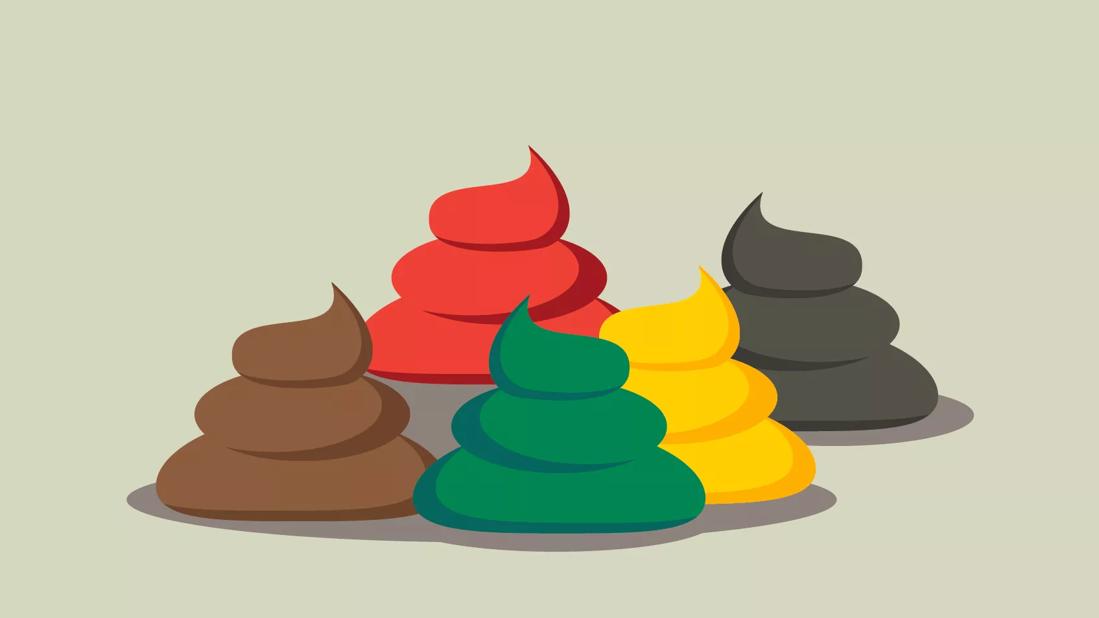Advertisement
Poop that’s green, red or some other hue is probably due to something you ate — but it could be a sign of health issues, too

A: Brown may not be the most exhilarating of colors, but nobody wants a breathtaking rainbow finish to a bowel movement. It can be a bit unnerving to see an eye-catching hue in the toilet. Boring is better when it comes to poop color.
Advertisement
Cleveland Clinic is a non-profit academic medical center. Advertising on our site helps support our mission. We do not endorse non-Cleveland Clinic products or services. Policy
But the reality is that you might see something unusual now and then. The good news? There’s probably a simple explanation for the colorful #2 that involves breakfast, lunch, dinner or a snack.
Vegetables, fruits and vibrant food dyes offer a crayon box of tinting options — because what goes in must come out. That can lead to green poop, red poop, black poop, yellow poop … well, you get the picture.
Green is the most common color to make a surprise appearance. So, if you’re eating a lot of “greens” — like kale, spinach and broccoli — you might see that hue naturally appear at the end of the digestive process.
Bright frosting on a cupcake also can turn your poo into some interesting (and unnatural) looking shades.
Any food-related tint should disappear quickly once the source is flushed from your system.
But if odd colors linger, it could be a sign that something more is going on. An unexplained greenish poop could be a symptom of:
Other colors also may serve as a signal of a medical issue. Be watchful for:
Advertisement
The bottom line on color? Don’t overthink a one-day appearance of an interesting hue, but contact your doctor if the color of your poop doesn’t revert back to boring brown within a few days.
— Gastroenterologist Christine Lee, MD.
Advertisement
Learn more about our editorial process.
Advertisement

There’s usually a simple answer, like what you ate, but the color can also be a cause for concern

Peppermint oil, exercise and a belly massage can help, but for ongoing symptoms, you may need to talk to a healthcare provider

Yes, diarrhea is common after drinking too much alcohol — and the best treatment is to hydrate and wait it out

After a cholecystectomy, your body may temporarily have a hard time processing fat and fiber

Opt for soft foods or liquids that are rich in protein, calories and vitamins

You may have some digestive issues after a cholecystectomy, but they’re usually temporary

Triggers can range from the foods you eat and the medications you take to how often you exercise and how stressed you are

Charcoal pills are used in certain emergency room settings but aren’t recommended for home use

If you’re feeling short of breath, sleep can be tough — propping yourself up or sleeping on your side may help

If you fear the unknown or find yourself needing reassurance often, you may identify with this attachment style

If you’re looking to boost your gut health, it’s better to get fiber from whole foods